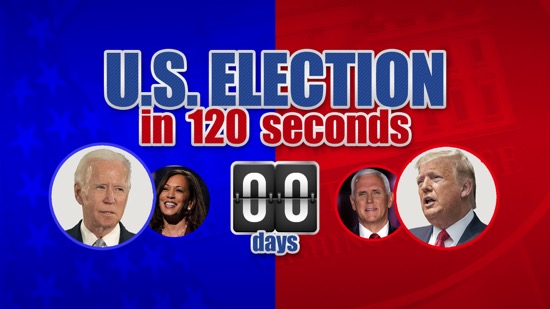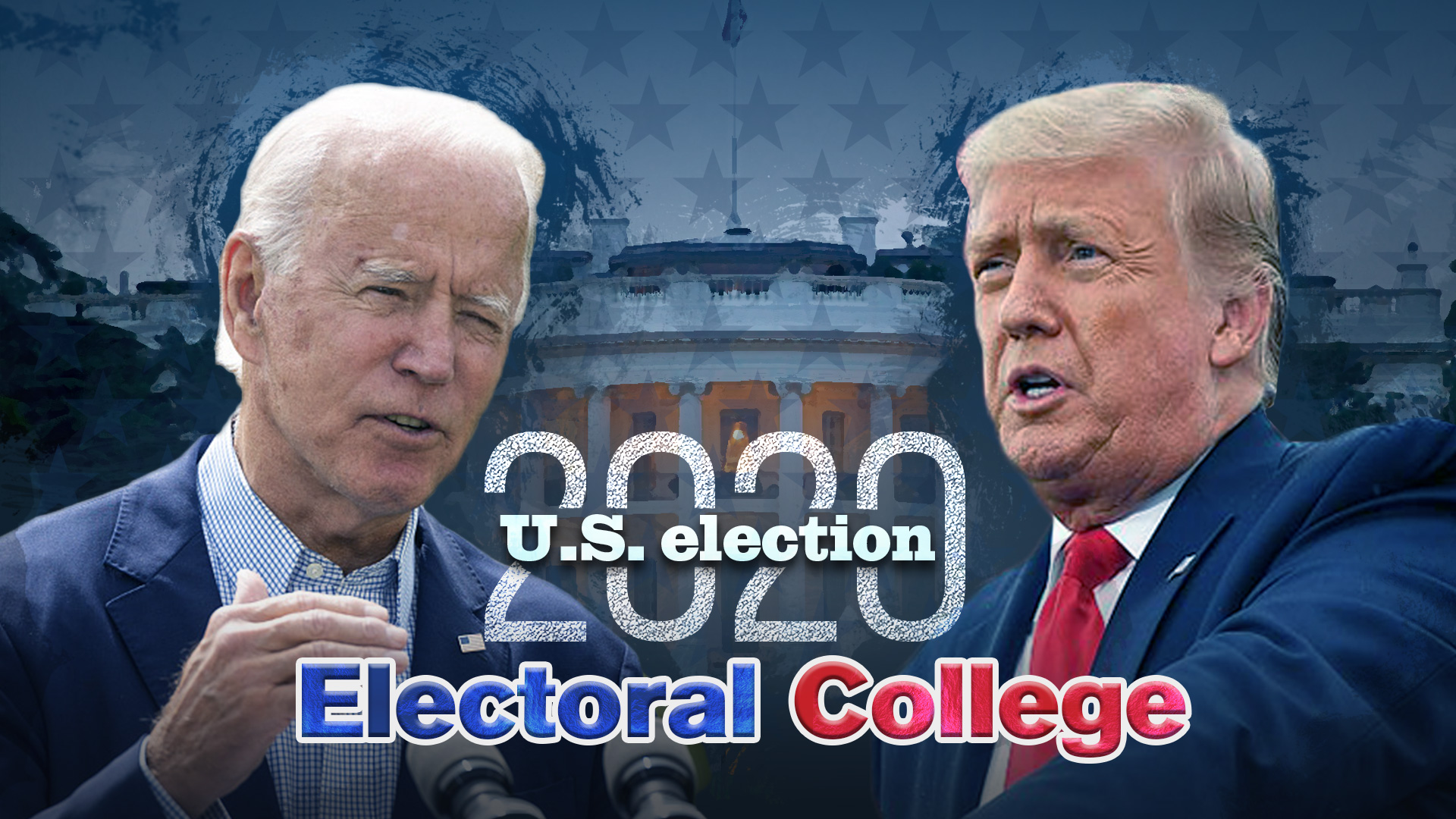It's the last day of voting in the U.S. election, and if you want to know the states the campaigns think will be decisive in the Electoral College, just take a look at the places Joe Biden and Donald Trump have visited in the final few days of the race.
Four scenarios: How election night may play out
Election 2020: How is a U.S. president elected?
With nearly 100 million votes cast before Election Day – more than 70 percent of the total turnout in 2016 – the candidates have focused their attention on Pennsylvania, where the 20 electoral votes up for grabs could tip the election, and Florida, the quick-counting swing state with 29 electoral votes.
02:01

Biden was in Pennsylvania, the state of his birth, on Sunday and was joined there by Kamala Harris, Lady Gaga and other high-profile Democrat supporters on Monday. Trump staged four campaign rallies on Saturday in the Keystone State, which he won in 2016, and returned on Monday.
If the president holds Pennsylvania, which is not expected to be called for several days, he will have a chance of reelection. If Biden takes it, the Democrat is almost certain to win the Electoral College, although he does have several other paths to victory.
Were he to score wins in Florida, Arizona, Georgia, Ohio or North Carolina, which are expected to report results on Tuesday night or Wednesday morning, the former vice president would probably not need Pennsylvania, which won't complete counting until later in the week.
Senate battles that could make or break the next president
A tangle of rules: Why the U.S. election confuses so many
Trump has also spent time in Georgia and Iowa, a sign he is under pressure in places he won handily in 2016, as well as his home state of Florida.
Biden again showed his ambition with a stop in Ohio on Monday, while his campaign was active on the ground in Texas, where the FBI is investigating an incident that saw a Biden bus surrounded by a convoy of Trump supporters.
02:07

How results emerge from – and how the campaigns respond to – what is expected to be one of the highest-turnout elections ever in the U.S. remains to be seen.
The president on Sunday denied reports that he would declare victory if he leads on election night – a move that would be controversial because many millions of votes will not be counted until days after polls close and there is no plausible scenario whereby he'll have hit the 270 electoral votes needed for victory on Tuesday evening. But he did imply that his campaign's lawyers could move to stop vote-counting that takes place in the days after November 3.
"I think it's terrible that we can't know the results of an election the night of the election," Trump told reporters. "We're going to go in the night of, as soon as that election's over, we're going in with our lawyers."
Asked to comment, Biden said: "My response is the president's not gonna steal this election."
Biden has outspent Trump on TV and social media two-to-one in the final stretch of the campaign and upped his appearances on the trail, while the president and his surrogates have been on a blitz of the battleground states that guarantees free local media.
But unless one candidate scores clear victories in the quick-counting states, it could be days or even weeks before we know the winner of the race for the White House.
Video: Wang Zengzheng and Zhou Tingyu
Script: John Goodrich